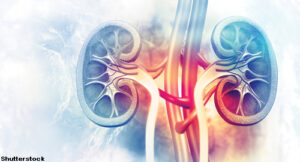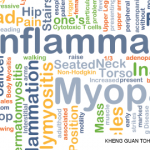 In this study, Fava et al. investigated longitudinal autoantibody profiles in a racially diverse cohort of patients with lupus nephritis to define noninvasive serological biomarkers of histologic class and one-year treatment response to standard of care. In addition, the researchers determined how these biomarkers changed over time to provide further insights into treatment response and pathogenic mechanisms in patients with proliferative lupus nephritis.
In this study, Fava et al. investigated longitudinal autoantibody profiles in a racially diverse cohort of patients with lupus nephritis to define noninvasive serological biomarkers of histologic class and one-year treatment response to standard of care. In addition, the researchers determined how these biomarkers changed over time to provide further insights into treatment response and pathogenic mechanisms in patients with proliferative lupus nephritis.
Autoantibodies are a hallmark of lupus nephritis, and some of these autoantibodies correlate with different histologic classes. For example, anti-C1q and anti-double-stranded DNA antibody positivity is associated with proliferative lupus nephritis, suggesting that the presence of these antibodies may be able to help distinguish these patients from patients with nonproliferative lupus nephritis.
Methods
Patients with systemic lupus erythematosus (SLE) who were 16 years or older and indicated for kidney biopsy were recruited at 15 clinical sites as part of the Accelerating Medicines Partnership program. Peripheral blood samples were collected from 279 patients with SLE undergoing diagnostic kidney biopsy based on proteinuria. Of these, 268 were diagnosed with lupus nephritis. Autoantibody specificities were measured by bead-based assays. Anti-C1q antibodies were measured by enzyme-linked immunosorbent assay at the time of biopsy and at three, six, and 12 months after biopsy. Clinical response was determined at 12 months.
Results
Proliferative lupus nephritis was associated with higher concentrations of anti-C1q, anti-chromatin, anti-double-stranded DNA and anti-ribosomal P antibodies compared to nonproliferative lupus nephritis. Anti-C1q and anti-double-stranded DNA antibodies were independently associated with proliferative lupus nephritis. In proliferative lupus nephritis, higher baseline anti-C1q antibody levels predicted complete response. Furthermore, levels of all autoantibodies except for anti-La decreased over 12 months in patients with proliferative, but not membranous, lupus nephritis with a complete response.
Conclusions
Baseline levels of anti-C1q and anti-double-stranded DNA antibodies may serve as noninvasive biomarkers of proliferative lupus nephritis, and anti-C1q antibodies may predict complete response at the time of kidney biopsy. In addition, tracking autoantibodies over time may provide further insights into treatment response and pathogenic mechanisms in patients with proliferative lupus nephritis.
For complete details, including source material, refer to the full study.
Excerpted & Adapted From
Fava A, Wagner CA, Guthridge CJ, et al. Association of autoantibody concentrations and trajectories with lupus nephritis histologic features and treatment response. Arthritis Rheumatol. 2024 Nov;76(11).

